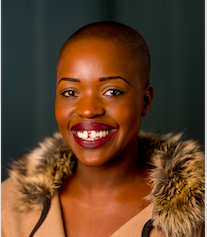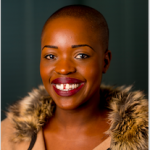
Deciding what to do after your MSc can be tough, whether you want to go on to get a job or further education. To make some of these options clearer in this month’s blog we interview Ziada Ayorech, who completed the Mental Health Studies MSc in 2014.
After doing your Undergraduate degree in Neuroscience in Canada, what brought you to King’s and Mental health studies MSc in particular?
I’ve always wanted to travel so my first requirement was that wherever I go it has to be outside of Canada. Then I started narrowing it down based on the basic questions I was interested in, so mental health. When I looked up what universities in the world were leading in mental health, time and time again King’s kept coming up. The IoPPN is right by the Maudsley, so there’s this whole history, it felt like that meant that things were close between research and practice. At King’s the turnaround is quick, you do the research and can apply it, that was key. And of course, it’s in London!
What have you been doing since finishing the MSc?
I’m in the final year of my PhD at the Social Developmental and Genetic Psychiatry (SGDP) Centre. I did it technically part-time and worked as a research worker on the same project, full time. Since my research work and PhD were so tightly linked, it meant that I still did the PhD in the normal amount of time. I’m really interested in applying new genetic techniques. The project I started working on is a twin study, so a lot of the work is twin designs to understand the relative genetic and environmental contribution to various broad traits like, mental health, education, physical health, and personality. I really got into more molecular genetic approaches. So rather than twins, using normal unrelated individuals who have had their DNA sequenced and seeing if from that DNA we can predict later outcome. I’d say my day to day is really quite stats heavy, but because I’m also a research assistant on the project I get to do science communication. Videos about communicating genetic analysis to lay public. That’s the stuff I really love, because we get to work with placement students or a whole class of sixth form students for a week. I get to plan what we do with them. so that balance is quite nice.
How did you get your research assistant/PhD position?
When I finished the master’s, I was keen to figure out what I wanted to do. I knew that I liked mental health, and I knew that I liked research. I thought for me the best route would be to get some work experience somewhere so I looked on job.ac.uk and there were a few posts that came up that were in the time frame that I wanted. Some of them I applied for and they were very much not for me. Then a post came up with my current supervisor and I think what was cool about that one was I knew nothing about behavioural genetics. Just the way it the post was written about personalised stuff, it rang true to what Dr Derek Tracey was talking about in my pharmacotherapy module. I thought, I don’t know what this is, but I think I want to try. It felt very non-committal because it wasn’t like I was applying directly to a PhD position, it was more like take this RA position for a year and if it’s not for you then you leave. If in that year you kind of decide that you want to pursue this, then apply for the PhD, but nothing is forced. Since I was still exploring what I wanted to do it was honestly the best move. Especially coming from the master’s because it’s so broad in the training that you get, you can do a lot of different things.so don’t just jump at the first thing in a rush to find something you know. Take a little time to explore, try a few different options that’s what’s been invaluable for me.
How did studying at the IoPPN help you?
With the master’s courses here especially in Mental Health Studies, there’s a lot of personalisation. A lot of room to say, “oh I’m going to take this course because it fits me” versus that course. So, there’s one module that everyone will take and then you can select your own within this mental health studies framework. Those courses were so broad and I think for me that was essential because coming out of my training in Canada this was the first time I was going to be working with humans. My background is in animal studies, so the MSc was the first foundation in Mental Health research. I think one of the things that I really got from it was critical thinking. through all the modules one of the things that King’s really trains you to do is not just take things on face value, ask questions, critique this, challenge that and I think it’s such an important way to think, especially if you’re doing research. So I think that is a fundamental skill I got from the MSc. Then I’d say connections, so the MSc helped me know who’s who and who’s doing what. It also gave me a way into meetings with people, who ended up being my supervisors or who provided references. I think because the master’s is one is the first times you feel like a colleague rather than just a student. That way when you go to apply for a PhD or the Doctorate in Clinical Psychology (DClinPsy) or something else, you have more confidence.
Do you have any advice for students looking at their next steps after the MSc?
I quite like planning and so one of the things I’d say is don’t get caught up in exactly what you want to do but lay the foundation. So, think of the Masters as an extended interview, and don’t think of it as oh I’m just going to get by. The grade that you get at the end for me is minimal in comparison to the connections you get, the people you meet and that research foundation. It’s helpful for whatever you want to get into, so why are you not talking to them? why are you not building those skills? or even just getting an idea of someone’s day to day. Maybe you want to do the DClinPsy but you’re wondering, what does that even mean? Go and talk to somebody who’s’ doing it. When you’re in King’s people from King’s want to help you, so don’t wait until after you’re done this degree, to go and speak to someone who’s important. The programme is really good at taking on feedback. If there’s something that isn’t working speak up and don’t suffer in silence, speak to someone and they will help you.
We hope this interview gave you some insight into life after an MSc at King’s college London. Find out more about the Mental Health Studies MSc on the online prospectus.


Leave a Reply